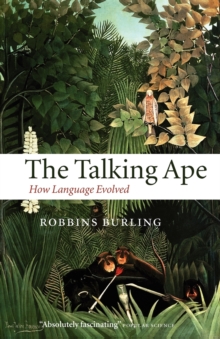
The Prehistory of Language PDF
Edited by Rudolf Botha, Chris Knight
Part of the Studies in the Evolution of Language series
Description
'When, why, and how did language evolve?' 'Why do only humans have language?' This book looks at these and other questions about the origins and evolution of language.
It does so via a rich diversity of perspectives, including social, cultural, archaeological, palaeoanthropological, musicological, anatomical, neurobiological, primatological, and linguistic.
Among the subjects it considers are: how far sociality is a prerequisite for language; the evolutionary linksbetween language and music; the relation between natural selection and niche construction; the origins of the lexicon; the role of social play in language development; the use of signs by great apes; the evolution of syntax; the evolutionary biology of language; the insights offered by Chomsky'sbiolinguistic approach to mind and language; the emergence of recursive language; the selectional advantages of the human vocal tract; and why women speak better than men. The authors, drawn from all over the world, are prominent linguists, psychologists, cognitive scientists, archaeologists, primatologists, social anthropologists, and specialists in artificial intelligence.
As well as explaining what is understood about the evolution of language, they look squarely at the formidable obstacles to knowing more - the absence of direct evidence, for example; the problems of using indirect evidence; the lack of a common conception of language; confusion about theoperation of natural selection and other processes of change; the scope for misunderstanding in a multi-disciplinary field, and many more.
Despite these difficulties, the authors in their stylish and readable contributions to this book are able to show just how much has been achieved in this mostfruitful and fascinating area of research in the social, natural, and cognitive sciences.
Information
-
Download - Immediately Available
- Format:PDF
- Publisher:OUP Oxford
- Publication Date:23/04/2009
- Category:
- ISBN:9780191562877
Information
-
Download - Immediately Available
- Format:PDF
- Publisher:OUP Oxford
- Publication Date:23/04/2009
- Category:
- ISBN:9780191562877










